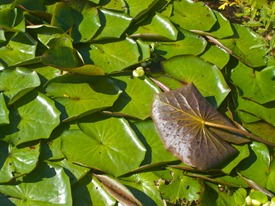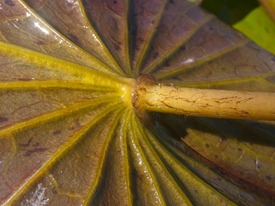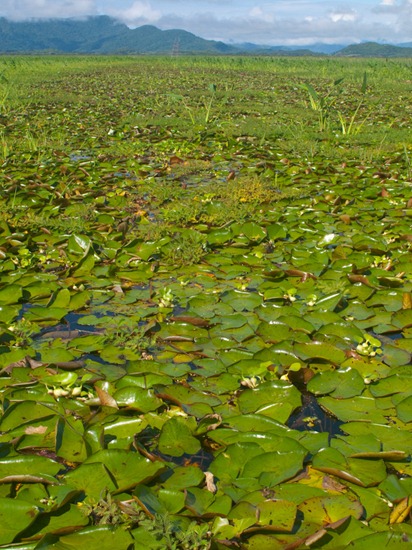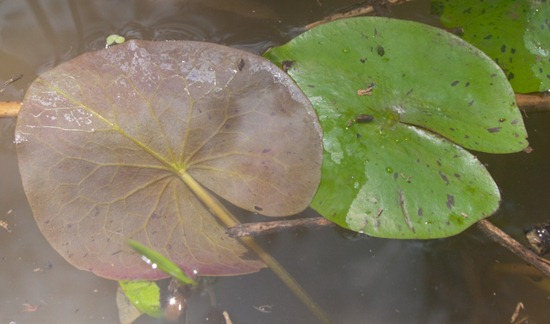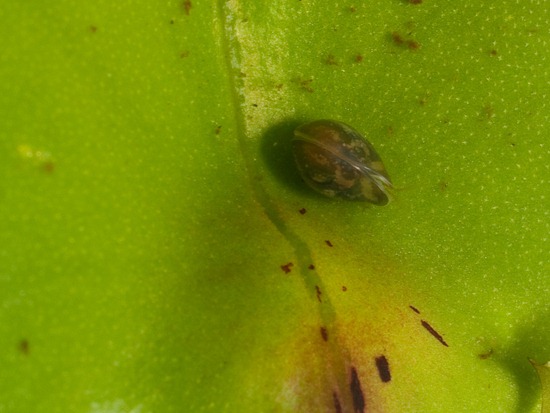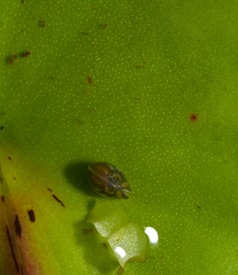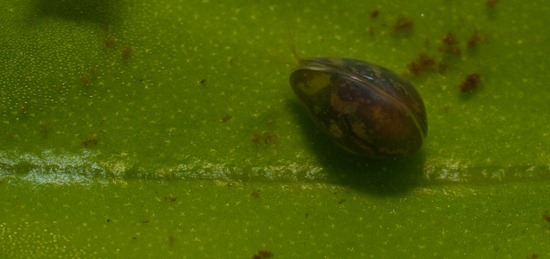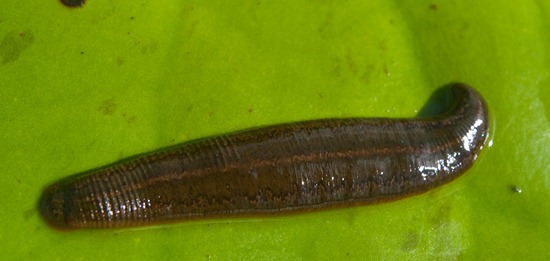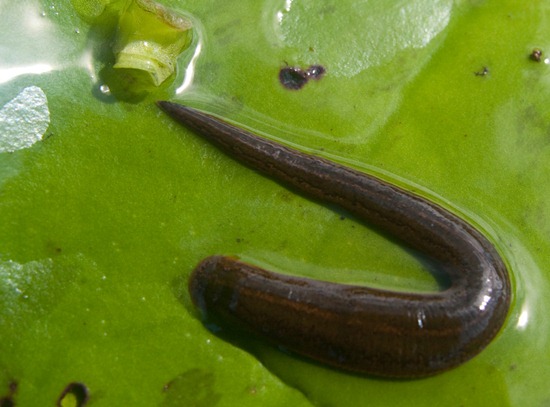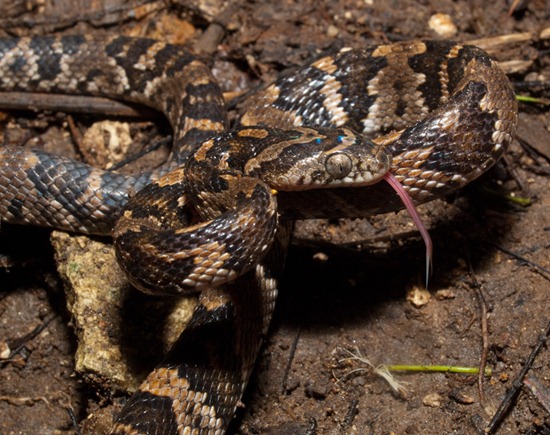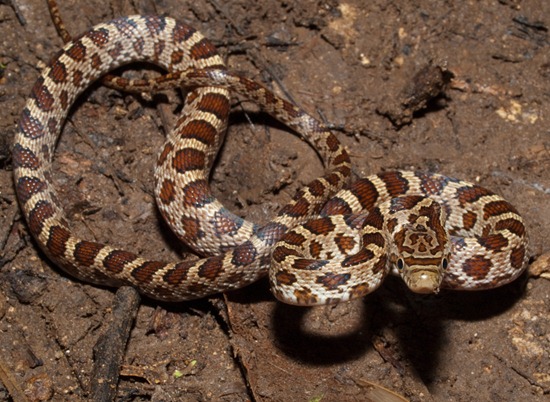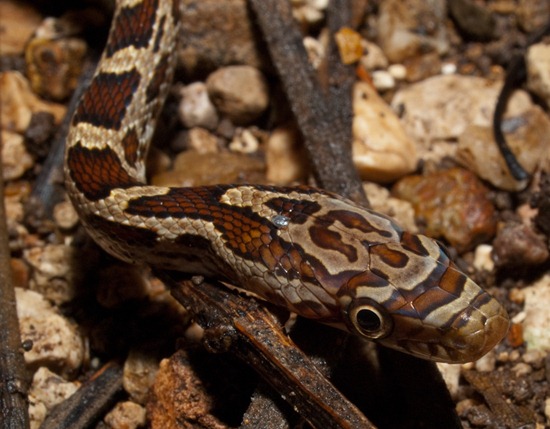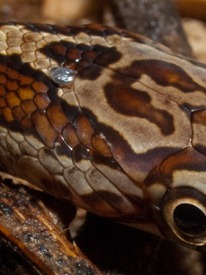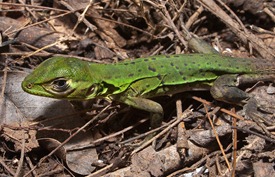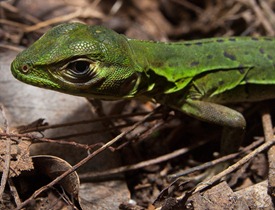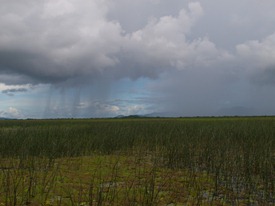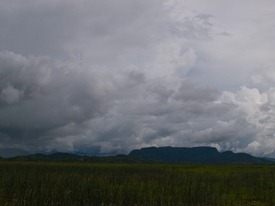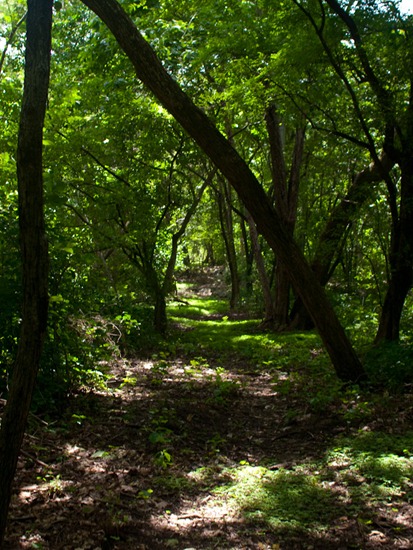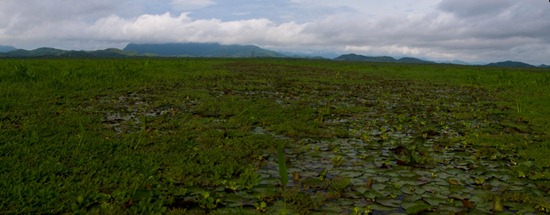Tag Archives: Costa Rica
Nymphaea prolifera
| Common in the shallower, west fringes of the wetland, I hadn’t encountered more than N. amazonum and N. pulchella prior to this year at Palo Verde. There are at least four other lily species I’m missing that have been documented in the Tempisque basin according to Crow. | 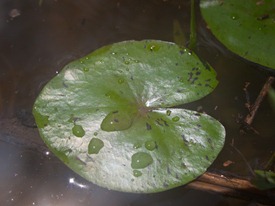 |
Ostracoda
Leech
Trimorphodon quadrupex
| You may recall Trimorphodon from the photo I posted here (almost exactly 1 year ago!) and the BioGSC calendar this past year. Again, a fairly aggressive snake, but also very beautiful. This year, I discover that it’s had a name change (T. biscutatus to T. quadrupex). | 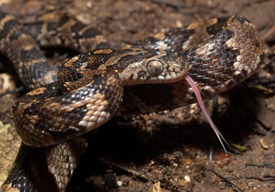 |
Senticolis triaspis
| A new snake species for me, I had misidentified this juvenile Senticolis (formally Elaphe) triaspis as Trimorphodon quadrupex (now distinct from biscutatus) (Savage and Bolanos 2009 Zootaxa), but the reddish color and round pupils didn’t sit well with me. When I keyed the snake out, I discovered that the juvenile is very different than the adult. Although it’s a very pretty, young constrictor, it’s fairly aggressive and has bitten several times – luckily, I didn’t misidentify a poisonous snake… | 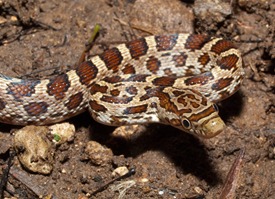 |
Another Ctenosaura similis Juvenile
Much more active than their adult counterparts, juvenile Ctenosaura seem to occupy the same habitat here as some of the Ameiva (maybe leptophys). Additionally, given that juvenile iguanas are more insectivorous than adults, they share some of the same food sources.
Tha wata’ comin’
As I stated before, it’s quite easy to see the rain coming (here and here and here and here too). Huge sheets of rain cloud views of the distance mountains and hills. Although I wasn’t able to photograph it because I quickly shoved my camera in a dry bag, the sheets climbed and draped over the mountain to the right and headed straight for me. They were so heavy, not only was it impossible to see the mountain, but it was difficult to make out a birding tower about 100 m away.
Additionally, I’ve been taking a number of panoramas in the field and quickly stitching the photographs together using Microsoft ICE. They make amazing backgrounds for the new wide-screen displays that are standard on today’s laptops and desktops!
Trail to Bocana
With an f-stop of 1.8, I can start to get some photographs in the understory without the picture turning out completely blurry. It would have been nice to have this lens on the Osa trip last winter, where a dense canopy inhibited my ability to photograph the trail. Here, in Palo Verde, a fast lens isn’t quite a necessary, because the canopy is less dense and it’s always sunny.

